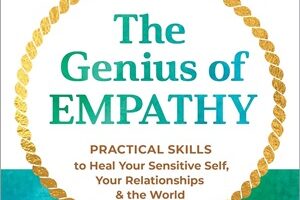
Right off the bat with the release of his new book, The Great Stupidity, you can tell Andy Lazris is angry. Really angry. The physician turned author and songwriter has this seething, simmering passion that barely is able to hide beneath the surface of the satirical prose of the book itself (detailing fictional and fictionalized characters during the age of the Black Death), the accompanying songs Lazris provides both within the text and in performative form on his official website, and within the context he provides for both experiences.
ABOUT THE AUTHOR/PROJECT: https://www.andylazris.com/the-great-simplicity
He’s not exactly coherent twenty four-seven within the read, allowing his more right-brain faculties rather than his left to run wild and rampant throughout the book’s roughly one hundred and fifty-nine page count. Luckily though, complimentary to his experience as an actual doctor and medical professional, the points he tries to make themselves never become diluted in the process. If anything, such an approach is an effective mixture of the public vitriol that is brewing in the streets, and a more informed outlook adding heft to said sentiments in a manner that isn’t always polite, but always captivating – as much for its delivery as it is for its rather disquieting implications. “To look at our own plague through the lens of the much more horrendous one the world faced in 1350 is to understand just how little has changed in medicine, politics, science, and faith.
As one professor whose course I listened to in my preparation for this book said, ‘People don’t change, only the world does.’ Or as Forrest Gump says, ‘Stupid is as stupid was’,” Lazris writes. The latter portion of the text is a particularly good example when it comes to Lazris being united with the public with said vitriol. He goes on to proclaim, “In many ways, both our plague and theirs demonstrate how overwhelming fear can strip from people their autonomy and sense of individuality and make them vulnerable to magical thinking, authoritative bullying, and unassailable submission to a power that promises them salvation.
Historian Michael Foucault observed about the Great Mortality: ‘History teaches us that epidemics are more like revelatory moments than social transformers. The plague-stricken town, traversed throughout with hierarchy, surveillance, observation, writing; the town immobilized by the functioning of an extensive power that bears in a distinct way over all individual bodies….’”
This kind of contrarian streak is further represented in one of Lazris’ own, featured musical works. The complimentary song is appropriately christened The Great Mortality, particularly relevant and pertinent lyrics going: “It’s true, we can’t be too careful Blocking bad air is the way we’ll survive. We know, that waving our hands fast And building up walls will keep us alive…Oh, the Great Mortality It’s a lesson in morality, For guys like, us, who never fuss, there’s a certain guarantee. We do stuff like this and that Follow science, God, and all that crap, Then God will squawk, ‘Hey, you guys rock,’ And we’ll live through out eternity.
All we got to do, is act the right way Do what we are told, don’t ever stray. It’s not that fun, but for God’s one son We got to work hard night and day. Let’s go, build all the walls up. Right now, put the sinners to the sword Doing shit, to push the bad air out Working together in the name of the Lord.” Lazris is hellbent on skewering all sides of the societal and sociopolitical factions of the Covid-19 debate. You can feel his disgust, particularly for the political presence in the field of medicine, and it’s palpable. The read isn’t enjoyable, but it will provoke your thoughts for this very reason. That’s to be commended.
Kendall Townsend














